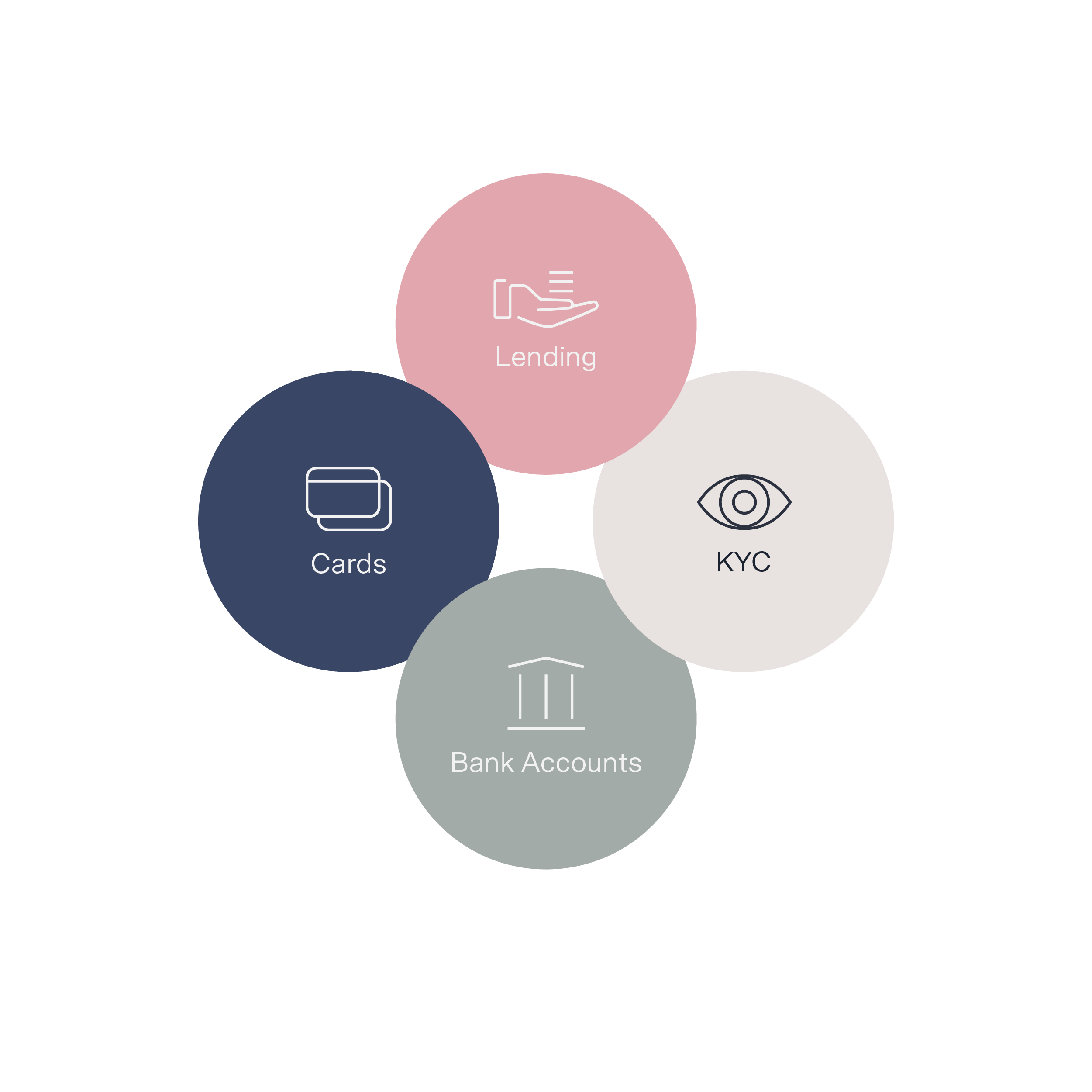Full banking license or e-money license? Here's what you need to know!
6 minute read


If you're a business that’s thinking of working with a Banking-as-a-Service provider and offering embedded financial products, one of the first decisions you'll have to make is which license you'll need: full banking license, or e-money license?
It's also a crucial one.
Your decision will determine the direction your business will take, what services you can or can't offer your customers, and even how you market yourself.
Find out about the key differences between a full banking license and an e-money license, their pros and cons, and the reasons you'd choose one or the other.
What's a full banking license?
A full banking license certifies that you meet the legal criteria to operate as a bank. Having this license means you can:
- Offer payment services
- Manage customers' deposits
- Offer interest-bearing accounts
- Issue credit cards, loans, and other consumer lending products
- Offer even more financial services such as bancassurance and wealth management
- Use the term 'bank' in your name and marketing materials
- Give customers the peace of mind that their deposits are protected by a deposit protection scheme (up to €100k per depositor)
In Germany, a full banking license is known as a CRR credit institution license or, more commonly, as a deposit credit institution license. In addition to the full banking license, it's also possible to apply for a license for individual regulated activities.
To get a full banking license, you need to apply to the financial services regulator in the country where you want to operate and prove that you meet the criteria. That said, in the Eurozone it's the European Central Bank (ECB) that ultimately decides whether to approve an application.
In practice, the national financial services regulator — in Germany, this is BaFin, the Federal Financial Supervisory Authority — receives license applications and makes preliminary decisions. The ECB then reviews the decisions and confirms them, applies additional conditions, or rejects them.
Because every EU country's banking laws must meet minimum standards, EU banking licenses enjoy what are called passporting rights. So, having a license in one EU country — Germany, for instance — allows you to offer your services in other EU countries and in the European Economic Area (EEA).
Of course, all specific requirements of the respective national supervisory authorities must be met in order to receive permission for 'cross-border passporting'.
How do you get a full banking license?
In Germany, you'll need to meet an essential amount of capital to fulfill the own funds requirement from the German Central Bank. This is an amount of money you must set aside over and above any customer deposits.
EU rules set the minimum capital requirement at €5 million. But the key word is 'minimum'. If the regulator has concerns, for example because they think your business model is very risky, they can tell you to set aside a larger amount.
It's useful to think of the minimum capital requirement as a rainy day fund. If you take a risk and lose some of your customers' money, for instance, you can make up for the losses by dipping into this reserve.
Banks must also contribute to a depositor protection scheme. By law, if a bank fails, customers have a right to get their money back, up to a maximum of €100,000 per customer.
Alongside minimum capital requirements, you must provide the regulator with extensive documentation. This includes, amongst many other things:
- A business plan that explains how you'll manage customers' money and your strategy for becoming and staying profitable
- A rundown of your organisational structure, that is how you're going to manage and run the bank and comply with the law on an ongoing basis
- A list of potential conflicts of interest
Regulators – in Germany the BaFin – also conduct a series of comprehensive interviews, plus thorough background checks to ensure the key people who own and run the bank are 'fit and proper'.
The idea is to make sure that those who are in charge or have a say in the bank's business are trustworthy and have the right knowledge and experience, so your money is safe.
In 2016, Solaris became the first fully cloud-based Banking-as-a-Service provider in Germany with a full German CRR banking license.

What's an e-money license and how do I get one?
To become an Electric Money Institution you need an e-money license. This license allows you to offer payment services and some other financial services products, but not operate as a bank or use 'bank' in your name or marketing materials.
E-money is regulated under banking supervision laws, as it functions as a digital equivalent of cash. Recognized as a legal substitute for a country's official currency, it provides users with secure and legally binding standards.
Broadly speaking, e-money institutions can offer less services than institutions with a CRR license.
As an electric money institution you can:
- Accept customer funds and change them into e-money, but not manage them.
- Customers can use e-money accounts as digital wallets, but they can't earn interest on them or go overdrawn.
- Offer debit cards, account-to-account transfers, standing orders, and direct debits, but not lending as a standalone product.
- Offer some digital financial services products, such as foreign currency exchange.
Like full banking licenses, e-money licenses issued in EU countries have passporting rights, which means you can offer your services in the rest of the EU and EEA.
That said, it's only the national financial services regulators who approve applications. The ECB isn't involved. The license application process is also shorter and less complex.
E-money is stored in the computer systems of Electronic Money Institutions (EMIs) or banks and is used to enable electronic transactions.
According to the German Federal Bank, the minimum capital requirement for an e-money license is a much lower €350,000. And, because you can't take risks with client money (more on this in a minute) there's no need to join a depositor compensation scheme.
Full banking license vs e-money license: what are the pros and cons?
The single biggest difference between banks and e-money institutions is that banks can do four things e-money institutions can't:
- Manage customers' money, including investing it or using it to issue loans to other customers at a profit.
- Offer interest-bearing accounts.
- Offer standalone lending products like mortgages or personal loans.
- Hold additional licences. Alongside banking business, banks can also obtain special licences — a payment institution licence, or a securities trading licence, for instance — that allow them to offer a broader range of products and create additional revenue streams.
Of course, because banks can take risks with customers' money, they have to follow very strict regulatory requirements, and are under somewhat more scrutiny than e-money institutions. Which means there's less flexibility when it comes to how you operate.
By contrast, e-money institutions must keep customers' money safe in a segregated account with a licensed bank. You can't touch customers' money or take any risks with it. Needless to say, this requirement means that, as an e-money institution, you're dependent on third-party providers, which can make you somewhat less nimble.
Because you can't take risks with customers' money, there's also no requirement to join a depositor compensation scheme – this can be dangerous for customers and businesses. Also, customers won't necessarily understand why, and may be put off by the fact their deposits aren't protected and that you're not a full-blown 'bank'.
Lastly, most e-money licenses have limits on transaction volumes, which can restrict how quickly and how much you can scale.
Compared to an e-money license, a CRR license provides broader capabilities than an EMI license, enabling full deposit-taking and lending services. This allows for greater flexibility, scalability, and financial stability.
| Bank | e-Money institution | |
|---|---|---|
| Minimum capital requirement | €5 million | €350,000 |
| Application fee | approx. €25,000 | €1,000 - €3,000 |
| Length of application process | 18 months + | approx. 15 months |
| Supervision | European Central Bank and national financial services regulator | National financial services regulator |
| Services | All services offered by e-Money institutions, plus all types of lending products | Payment services, e-Wallets, Foreign exchange transactions |
| Customer security | Depositor protection scheme covers up to €100,000 per customer | Must keep client money in a segregated account, Limits on transaction volumes (vary by country), Can't offer interest-bearing or lending products |
| Passporting rights in the EU and EEA | Yes | Yes |
Ready to offer financial services in the EEA?
Looking for a tech-savvy, secure partner with a full banking license to power your financial offerings? Solaris is here to help.
Watch the video to learn more about the future of embedded financial services.
If your goal is to provide customers with the full spectrum of banking services – from basic current accounts to credit products and financial advice – a full banking license is essential. While it comes with stricter compliance requirements, the benefits are extensive.
With our advanced APIs, businesses can seamlessly integrate compliant digital banking features into their products—expanding into new markets with ease. We bring together the best of technology and regulated banking, managing all the complexity so you can focus on delivering value to your customers.
Our entire banking infrastructure is cloud-based, enabling us to deliver exceptional digital banking experiences for our partners’ customers. We are at the forefront of developing innovative, fully digital financial products.
Solaris operates under a German CRR credit institution license, with branches and local IBANs in France and Italy, and passporting rights across the EU and EEA.